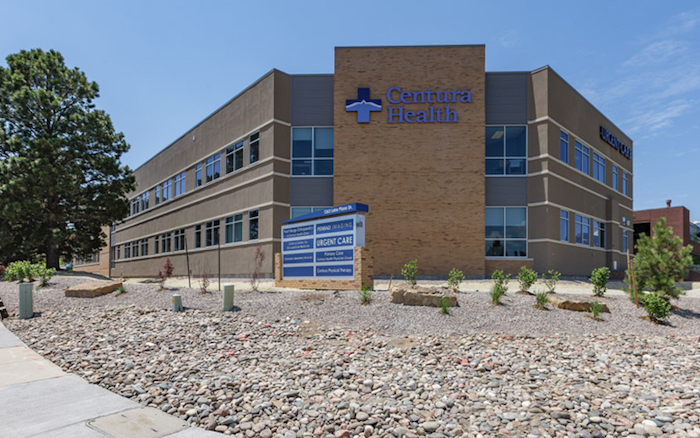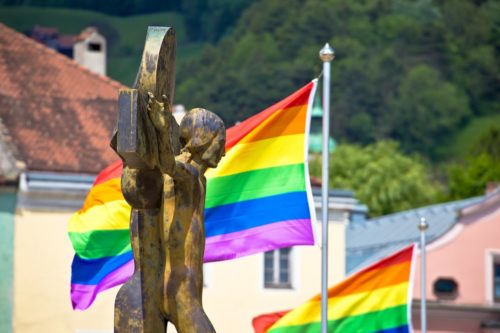— Survey finds NJ Catholics want a more inclusive church

By Deena Yellin
Thousands of New Jersey Catholics gathered over the past year in an unprecedented series of meetings designed to help steer the future of the church.
The consensus, officials say, was clear: The Catholic Church needs to open its arms more to women, immigrants, LGBTQ individuals and others who feel marginalized by the faith.
The desire for more inclusivity was a major theme in discussions with 16,000 parishioners in four of New Jersey’s Catholic dioceses, according to summaries released recently by each diocese. While responses varied widely, many at the listening sessions said they too often feel unwelcome. Participants also cited distress at the church’s handling of the clergy abuse scandal.
“The challenge remains,” Trenton Bishop David O’Connell said in a statement, for the church “to determine ways to address and minimize the hurts felt by people.”
The surveys conducted by the Trenton, Camden, Paterson and Metuchen dioceses — representing almost 2.5 million Catholics — were part of a synod, or assembly, launched by Pope Francis last year and aimed at taking the pulse of the world’s Catholics. Such efforts have been convened throughout the centuries, generally with church leaders. But Francis upped the ante by asking every diocese on the planet to survey its parishioners, churchgoing or not.
The Newark Archdiocese, the state’s largest, with nearly 1.5 million worshippers in Bergen, Essex, Union and Hudson counties, is still working on its report, and its completion date is uncertain, spokesperson Sean Quinn said.
Other key themes from the New Jersey sessions included women’s role in the church, a desire for greater involvement in decision-making by the laity and the need to better engage young people, who have been fleeing religion in general. The call for a more welcoming church was echoed in recent reports from Catholic leaders in Seattle, Pittsburgh and Washington, D.C.
Findings from the U.S. and assemblies around the world will be sent to participants of the synod in Rome, due to gather in October 2023.
Francis’ synod is the “widest in scope” that’s ever been attempted, said Tim Gabrielli, an expert in Catholic theology at the University of Dayton in Ohio, “Whether there will be a change in church doctrine as a result of the reports remains to be seen.s
“The process itself — which involves speaking with frankness, accompanying one another and carefully listening to each other — is transformational,” he said. “I don’t think anyone knows what will come of it. Pope Francis has never suggested a change to church teaching but has been consistent in emphasizing the importance of a more complete welcome and ministry to LGBTQ persons.”
Here’s a look at what local Catholics had to say, based on the four dioceses’ reports:
Paterson Diocese

The Diocese of Paterson, with 577,000 members in Passaic, Morris and Sussex counties, said many of the 5,000 participants in its synod sessions expressed a sense that the church is not loving. The church’s report said people cited “the absence of inclusion and sensitivity to women, Hispanic/Latino community, LGBTQ people, families with young children, people with special needs, people victimized by abuse, the elderly and other people who, for whatever reason, feel that they do not conform to the prevalent social or moral norms.”
English-speaking participants most commonly cited gender as a fault line and Hispanic churchgoers’ ethnicity, the diocese said. “Although not all participants called for a change in the Church’s teaching on these matters, they did call for a change in approach and attitude,” its summary added.
Some said the church should adapt to modern times, while others were content with the status quo. Some said priests should be allowed to marry and women to serve as deacons and priests; others affirmed their support for an all-male, celibate priesthood.
Parents and relatives “expressed that their LGBTQ children did not feel welcome and included by the church,” said the Rev. Paul Manning, the Paterson diocese’s vicar for evangelization. “People were on both ends when it came to the morality of the issue, but certainly felt that ministry to and inclusion of the LGBTQ community was lacking.”
Not all the feedback was negative, he noted in summarizing the synod results. “Most Catholics long for Jesus and care for the Church,” Manning said. “That is the key message of the report.”
Trenton Diocese

The Diocese of Trenton, which encompasses Burlington, Mercer, Monmouth and Ocean counties, has a Catholic population of 774,000. Among the 4,500 participants’ most prominent concerns was that their children and grandchildren don’t practice their Catholic faith. “There is a dismay that the church doesn’t know what to do to attract and keep young people,” said the report.
The clergy abuse scandal and the crisis of credibility it generated was anther major theme. It “continues to be a source of pain for many, not only for victims and their families, but also for average lay Catholics and priests,” the diocese said. Some said they lost confidence in the church leadership because of the way the abuse crisis was handled.
Among the conclusions of the Trenton synod was that the church should consider married priests and reopen discussion about women serving as deacons and priests, along with other leadership roles.
“We need to continue to increase respect for women and their role in the Universal Church,” the diocese concluded. “The church must also do more to engage young people and offer them opportunities to be included. And finally, the church needs to be more welcoming to all, not only in words but in action.”
O’Connell, the Trenton bishop, said he wasn’t surprised by the criticism but also noted people’s “love for the Holy Eucharist and willingness to serve in various ministries.” The diocese must look to “build upon the strengths and good experiences expressed by participants.”
Camden Diocese
Many of the nearly 4,000 participants discussed the need for women in church leadership and also said the diversity of the local community is not reflected in their parishes. The diocese includes 475,000 Catholics in Atlantic, Camden, Cape May, Cumberland, Gloucester and Salem counties.
A substantial number of people complained about the exclusion of LGBTQ and divorced individuals. The common recommendation was to create specific ministries where members can enjoy the richness of parish life, the church said.
“There appears to be a perception that the LGBTQ and divorced individuals cannot receive communion and participate in liturgy,” said the report. “Many expressed a need for improving the teaching on these subjects.”
Metuchen Diocese
The Metuchen diocese is composed of a Catholic population of roughly 650,000 and encompasses Middlesex, Somerset, Hunterdon and Warren counties. About 1,800 people participated in sessions, and many said the church is moving “too slowly” and is “too harsh,” but didn’t offer specific examples.
As in the other New Jersey dioceses, Metuchen participants were concerned about marginalized groups feeling “excluded” and said the church needs to become more hospitable, its report said.
People pointed to outdated language used by the church to refer to those who identity as LGBTQ as “disordered,” describing it as hurtful. Some respondents accused the church of being “out of step with the world” regarding gender issues.
Complete Article ↪HERE↩!




